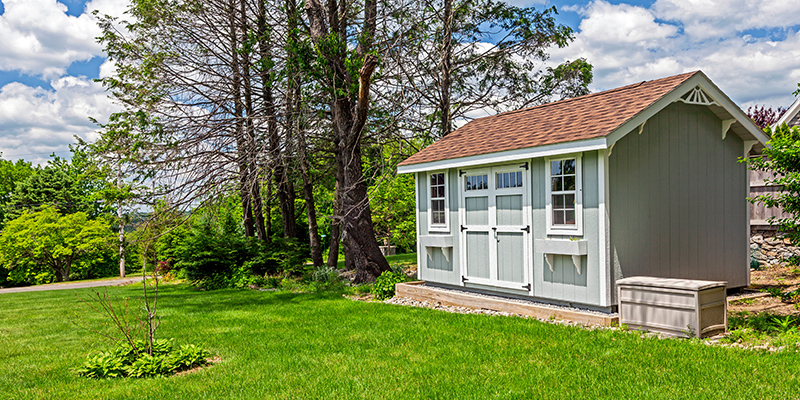Can An HOA Collection Agency Be The Solution To Late Fees?
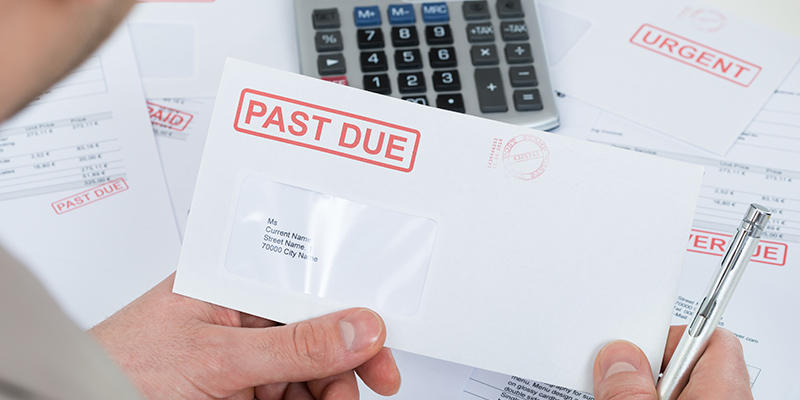
Homeowners association dues collection poses many challenges, the most difficult of which is getting homeowners to settle their late fees. In these instances, it is usually more reasonable to outsource the task to an HOA collection agency.
Browse By Category
Sign up for Our Newsletter
Homeowners association dues collection poses many challenges, the most difficult of which is getting homeowners to settle their late fees. In these instances, it is usually more reasonable to outsource the task to an HOA collection agency.
What Is an HOA Collection Agency?
Simply put, an HOA collection agency is a third-party agency or company that handles debt collection for homeowners associations.
Residents of a homeowners association pay dues on a monthly basis. When these dues go unpaid for at least three months, the association can declare the homeowner delinquent.
Associations that have many delinquent accounts can suffer a number of consequences. Dues are HOAs’ primary source of income. It is how associations make money, which is then used to pay various expenses related to the maintenance and upkeep of the community.
When several homeowners fail to pay their dues on time, the HOA can experience a deficit. The board will then need to impose a special assessment to afford the association’s monthly expenses. Alternatively, the board might delay or altogether cancel maintenance tasks which will result in the deterioration of the community.
How Can an HOA Collection Agency Help Your Community?
Many homeowners associations feel apprehensive about hiring an agency to collect overdue association fees. But, such agencies actually offer a handful of benefits.
1. Cost-Effective
For one thing, outsourcing the task of collecting late fees can be very cost-effective. Although agencies typically charge a fee or keep a percentage of the late dues, they can also reduce the number of delinquencies in your HOA.
If your HOA charges $1,000 every month and five homeowners each owe 5 months’ worth of dues, then you have $25,000 in dues receivable. Let’s say an HOA collection agency keeps 10 percent of each homeowner debt they collect. If you hire them, you are looking at a total of $2,500 in agency fees. A net of $22,500 of collected HOA late fees is much better than $25,000 of uncollected late fees, isn’t it?
2. Expertise
 HOA collection agencies know what they are doing — they have done it thousands of times before.
HOA collection agencies know what they are doing — they have done it thousands of times before.
Because they are more well-versed when it comes to HOA collections, it makes sense to seek their assistance when your delinquencies really start to pile up.
These agencies know which tried-and-tested strategies to use on homeowners, no matter the type. They also know how to protect both themselves and the HOA from potential liability by following the law and through proper documentation.
3. More Time for Other Matters
Let’s face it — collecting homeowners association late fees is a time-consuming endeavor. It is a never-ending pursuit and one that can drive you insane with frustration.
In addition to better mental health, hiring an HOA collection agency is simply more efficient. As a board member, you have more important issues to attend to, and focusing on those matters is a better use of your time. Besides, you probably don’t want to spend your Saturdays knocking on every delinquent homeowner’s door and convincing them to pay up.
Understanding Collection Costs
Collection costs are the additional costs a homeowners association incurs when collecting delinquent dues. In the context of an HOA collection agency, it is how much the agency charges in exchange for its services. This could be in the form of a fixed rate or a percentage of the amount collected.
In some cases, the homeowners association can recover these collection costs by charging them to the homeowner. This rule does not apply to all HOAs, though. State laws or your governing documents should expressly permit this type of practice for you to qualify.
For instance, North Carolina General Statutes Section 47F-3-116 states that HOAs can recover collection costs and attorney’s fees provided their declaration allows it. The law also stipulates that HOAs should provide a notice of intent to collect additional costs at least 15 days prior and give homeowners an opportunity to settle their overdue fees without collection costs.
It is imperative to first check your state laws and your governing documents to see whether recovering collection costs is permitted. This way, you can safeguard your association and HOA board from possible legal action.
The Fair Debt Collections Practices Act
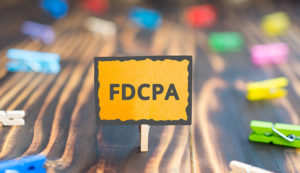 HOA collection agencies must follow the Fair Debt Collections Practices Act (FDCPA) when collecting unpaid dues from homeowners. This act governs debt collection practices and bodies to protect consumers, otherwise known as debtors.
HOA collection agencies must follow the Fair Debt Collections Practices Act (FDCPA) when collecting unpaid dues from homeowners. This act governs debt collection practices and bodies to protect consumers, otherwise known as debtors.
According to the FDCPA, debt collectors (collection agencies) can’t engage in unfair, abusive, or misleading actions. There are also certain disclosures the FDCPA requires of debt collectors.
For instance, when a debt collector sends a dunning notice or initial demand letter to a consumer, they must include the following:
- The debt amount;
- The creditor’s identity; and,
- The consumer’s right to request to verify the debt.
The same applies to any other form of communication within five days of when the debt collector first contacted the consumer. The act also requires that debt collectors must identify themselves as a debt collector every time they communicate with a consumer.
Under this act, homeowners are considered consumers, and HOA collection agencies are considered debt collectors. It is worth noting, though, that the “debt collector” designation only applies to third parties and not the creditor. In other words, the FDCPA mostly does not regard homeowners associations to be debt collectors. Still, there are states with their own laws that govern how creditors can collect a debt.
When a debt collector violates the FDCPA, they may be held liable for civil damages of up to $1,000, in addition to attorney’s fees and actual damages. Such matters are settled in federal district court or in state court.
The HOA Collection Company Selection Process
A good collection agency can efficiently and effectively settle delinquent accounts in your homeowners association. In contrast, a bad one can leave dues uncollected, treat homeowners poorly, and put your HOA at risk of liability. Therefore, selecting the right HOA collection agency is imperative. Here are some tips when it comes to hiring a collection agency:
1. Look Online
A simple search online will quickly turn up many potential candidates. The best part about conducting online research is that you can immediately see which agencies have a bad reputation. If they have been involved in lawsuits before, it might show up on your search.
2. Get Referrals
Word-of-mouth recommendations are always the most reliable. If you know a neighboring HOA that has used a collection agency, it may be worth asking for a referral. You may also be currently employing an HOA management company. If your HOA management company does not handle outstanding dues collection, you can ask them for any agencies they have already vetted.
3. Watch Out for Hidden Fees
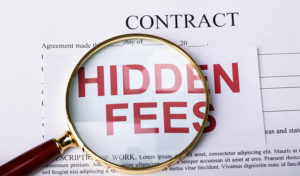 You may feel tempted to go with the agency that offers the lowest collection costs. But, if an agency charges bargain-basement prices in exchange for their services, they may have surprise costs or hidden fees.
You may feel tempted to go with the agency that offers the lowest collection costs. But, if an agency charges bargain-basement prices in exchange for their services, they may have surprise costs or hidden fees.
When going through the selection process, make sure to find out their exact fee structure. Ask about any additional fees not covered in the standard collection cost. It is also a good idea to go through your vendor contract with an attorney prior to signing.
4. Ask Questions
Before making a decision, try setting up an interview with all of your candidates. This will give you the chance to ask important questions. Inquire about their collection strategies and how they keep up with the FDCPA. This is also when you would normally clarify any vague or confusing terms in your agreement.
5. Request a Report of Past Collections
It is one thing to know what collection strategies agencies use, but knowing whether or not these strategies work is another ball game. You can gauge an agency’s success rate by requesting a report of their past collections. Of course, that kind of report is typically confidential, so you can ask them to remove any personal information. All you need to see are the amounts owed and compare them with the amounts they ended up collecting.
HOA Collection Agency Alternatives
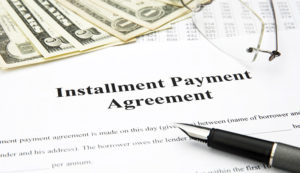 Every community should have a collection policy outlining its procedures for collecting dues. An
Every community should have a collection policy outlining its procedures for collecting dues. An
HOA collection policy can differ from association to association, though there are some similarities that a majority of them share. Aside from using an HOA collection agency, here are ways on how to collect delinquent HOA dues:
- Send a Notice. Most associations start by sending a delinquent HOA dues letter informing the homeowner of their outstanding debt. This usually includes the total amount owed and when the association expects payment.
- Charge Late Fees. There are many associations that employ an HOA late fee policy as state laws and governing documents allow. Imposing a late fee as a penalty on top of the dues owed can deter delinquencies and encourage homeowners to pay their dues on time.
- Offer a Payment Plan. When homeowners refuse to pay HOA fees, it may be more than just forgetfulness or outright defiance at work. Sometimes, homeowners fall on hard times and find themselves in a difficult financial position. If your governing documents allow it, you can offer delinquent homeowners a payment plan to give them time to catch up. Some states, like Colorado, even mandate it.
- Attach a Lien. Many associations can place a lien on delinquent homeowners’ properties. These liens automatically attach to the property once a homeowner’s dues become delinquent. Associations must provide homeowners with sufficient notice and record the lien with the county recorder’s office. Liens make it difficult for homeowners to sell their property.
- Initiate Foreclosure. In some cases, HOAs can foreclose the lien attached to the property in an attempt to collect unpaid dues.
It is important to remember that all homeowners must pay their dues, even those who are members of the board. HOA board members not paying dues suffer the same consequences as regular members of the association.
Every HOA Needs Help
No homeowners association is ever perfect. You will always encounter homeowners who either forget or refuse to pay their dues. Since dues are your HOA’s source of income, though, it is important to know how to collect the unpaid ones to keep your association solvent. Adopting the use of an HOA collection agency is one way to do it.
On the other hand, many HOA management companies offer dues collection as part of their services. If you need an HOA management company, start looking for one near you using our comprehensive online directory.
RELATED ARTICLES:
- Why Is A HOA Management Contract So Important?
- Top HOA Interview Questions To Ask And Tips For The Interview Process
- What Are HOA Disputes? How To Practice Dispute Resolution?
Trending Now
Related Article
Sign up for Our Monthly Newsletter
Sign up below for monthly updates on all HOA Resource







